Covid: Medically vulnerable people fear end of rules
- Published
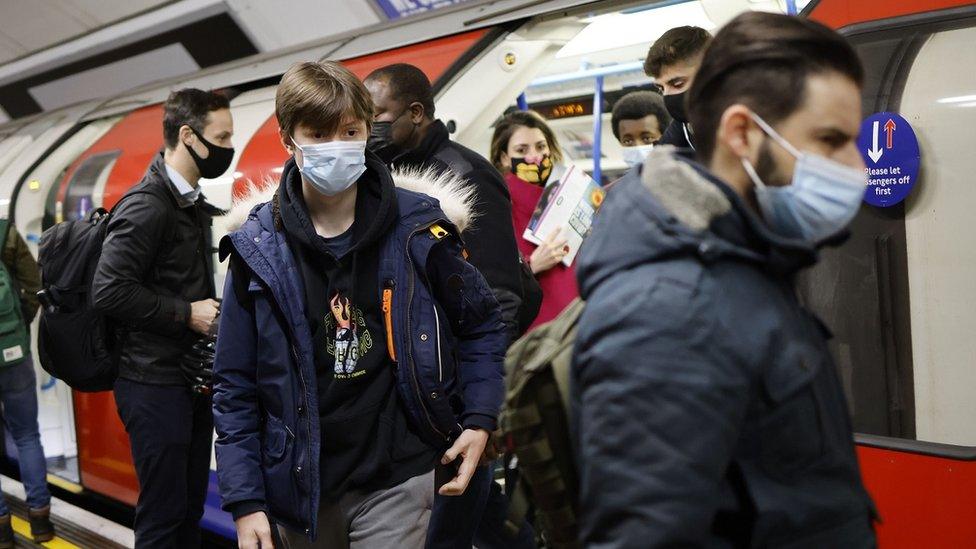
The requirement to wear masks on the London Underground is one of the restrictions being removed
Medically vulnerable people say the decision to end Covid restrictions means their freedoms being eroded.
Prime Minister Boris Johnson announced that legal requirements, including the need to self-isolate if you test positive, will end on Thursday.
Two clinically vulnerable women in the West say not knowing who is infected means it is now more dangerous for them to leave their homes.
"It doesn't feel safe," said Chloe Ball-Hopkins, from Gloucestershire.
"My friends and family will continue to try and keep me safe, my partner will keep me safe, they'll continue to test before they meet me," said the 25-year-old from Wotton-under-Edge.
The PM said the nation had passed the peak of Omicron, and with cases and hospital admissions falling, it was now time to complete the "transition back to normality".
As well as the legal requirement for people with Covid to isolate, £500 isolation payments for those on low incomes will stop this week and free mass testing will cease on 1 April, Mr Johnson said.
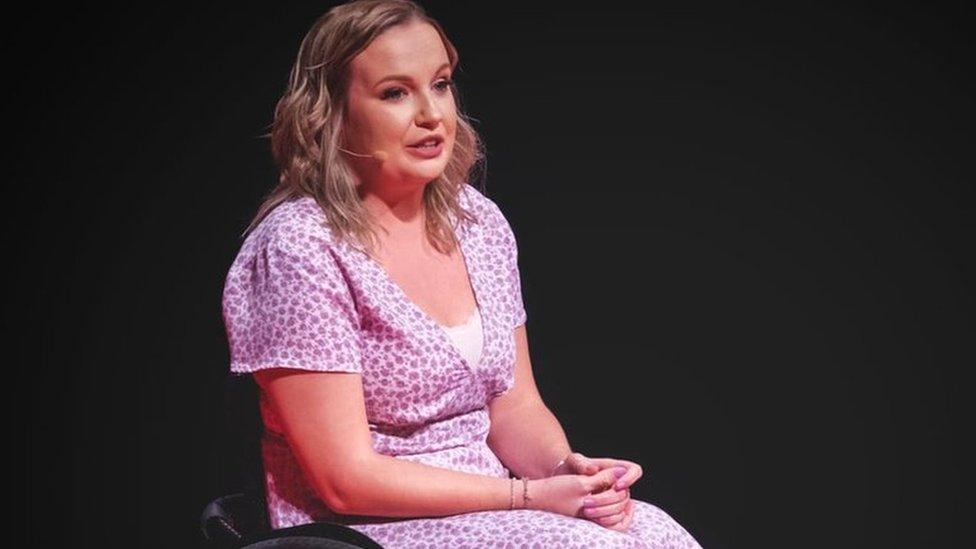
Chloe Ball-Hopkins said she felt the removal of masks and self-isolation was happening too soon
Miss Ball-Hopkins has already had her fourth vaccine dose as she is considered extremely clinically vulnerable.
She has a rare form of muscular dystrophy called nemaline myopathy which affects her respiratory system, and contracted sepsis in 2019 which undermined her immune system further.
Miss Ball-Hopkins said that while the easing of restrictions would feel like freedom to much of the population, it meant the opposite for her.
"I'm supposed to go out and live my life normally yet now I won't know if someone next to me in a supermarket is literally breathing Covid down on me, as I'm in a wheelchair.
"I was actually probably safer in January when everyone was wearing masks than I will be in a week's time. That makes no sense," she said.
Miss Ball-Hopkins said she felt the easing of restrictions was happening too early, and there were "millions of people" who will find themselves in similar situations.
"Simple things like someone staying home if they find out they have the virus, or wearing masks - those were the two safety features that I thought were going to remain in place to help me to start integrating again," she added.
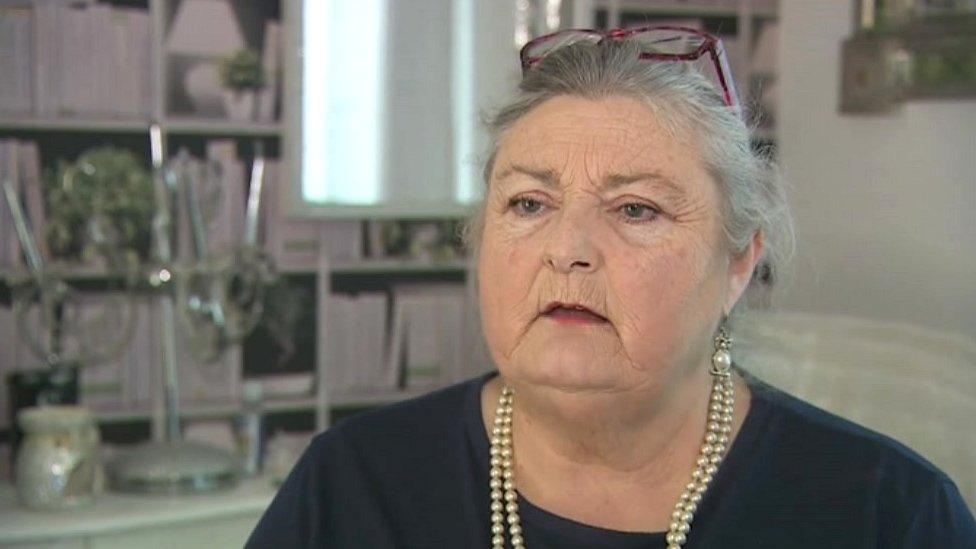
Sheila Smith has been shielding throughout the pandemic
Sheila Smith, who lives in Chard, Somerset, has a type of progressive lung disease.
"The virus is out there, free. There's no protection for anybody like myself at all now," she said.
"It does limit if we were to go out, as to where we would go.
'Minority group'
Despite being fully vaccinated, she has only left her home five times since the pandemic began.
"We are a minority group and the government is trying to get the country back on its feet.
"So we've got choices, we go out or we stay in. But at the moment with restrictions being lifted, I think a lot of us will stay in more, we'd have to," she added.
Fiona Loud, of the charity, Kidney Care UK, said: "We really want society to, of course, move on, but at the same time for protections and provisions for people who are in that situation [clinically vulnerable] to continue rather than for them to feel like they have been completely left behind."

Follow BBC West on Facebook, external, Twitter, external and Instagram, external. Send your story ideas to: bristol@bbc.co.uk , external
- Published21 February 2022
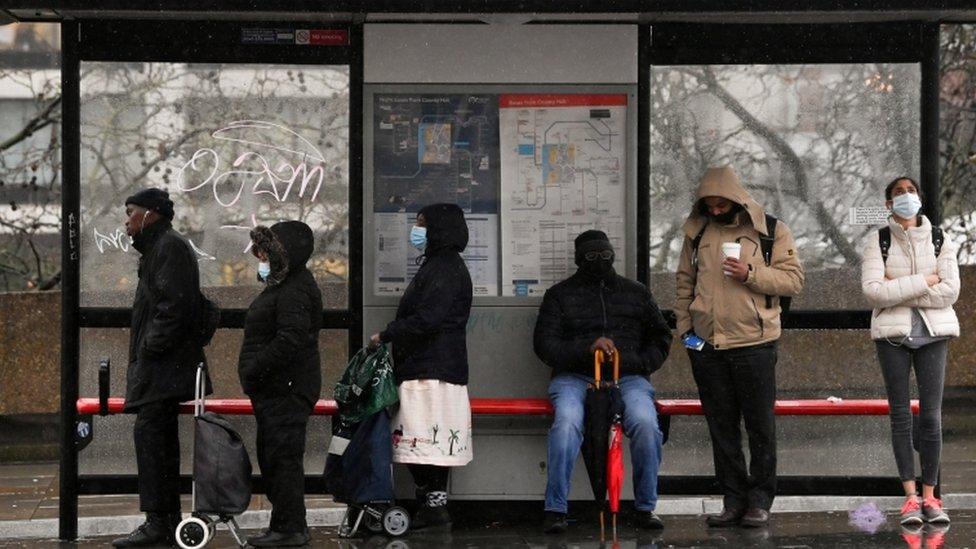
- Published16 February 2022
- Published15 February 2022
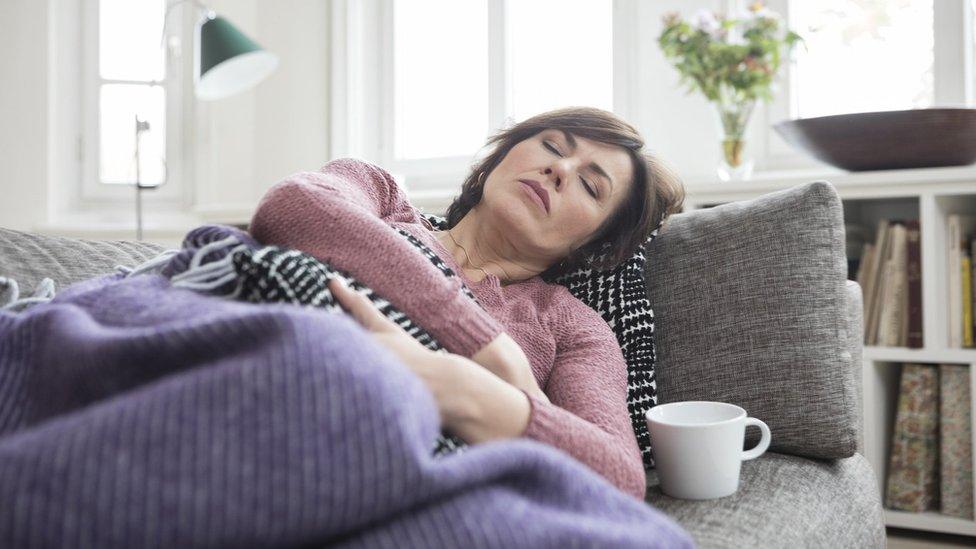
- Published10 February 2022
- Published15 January 2022